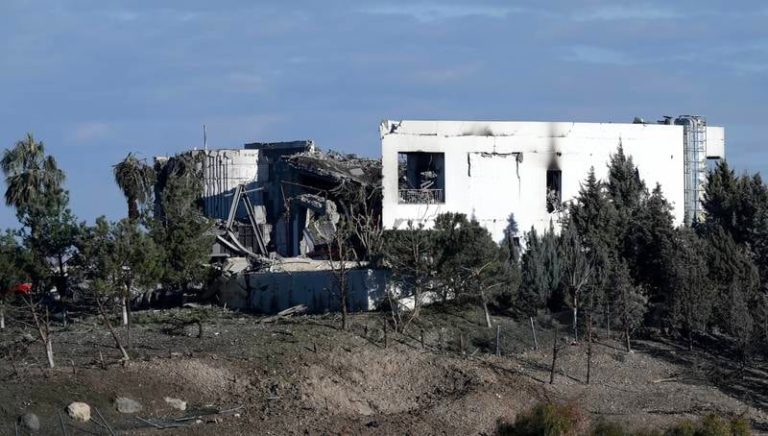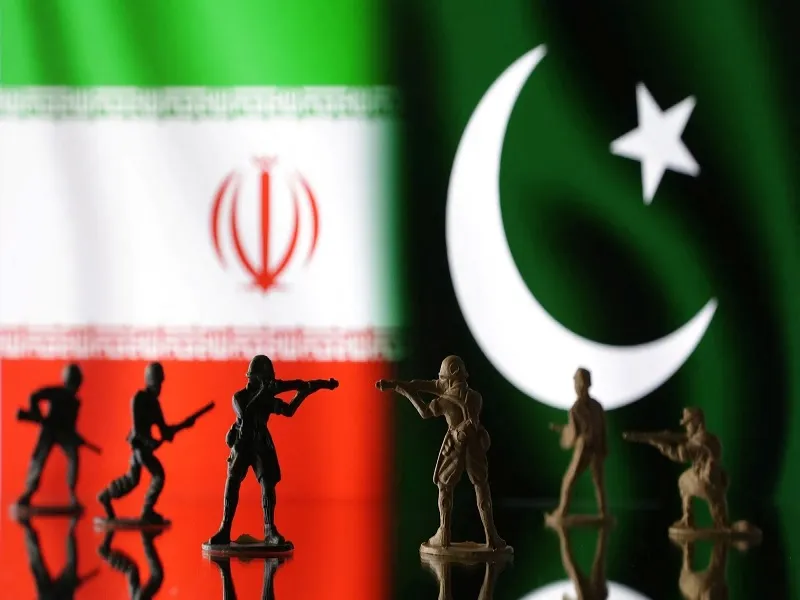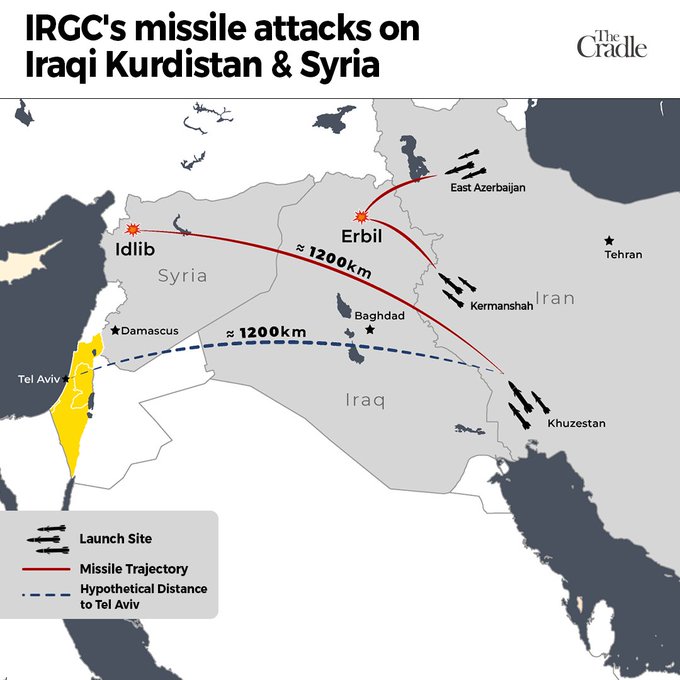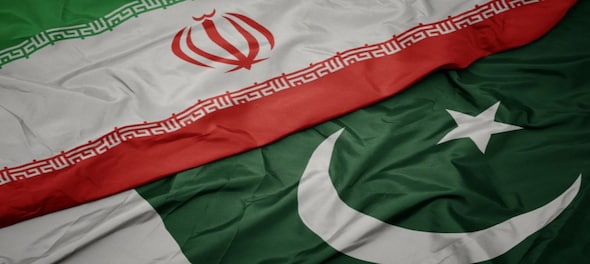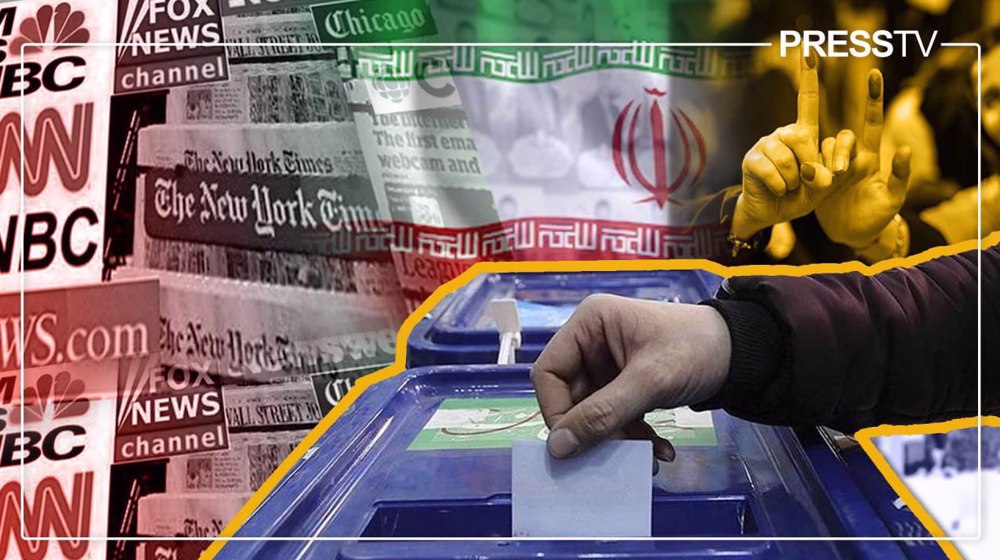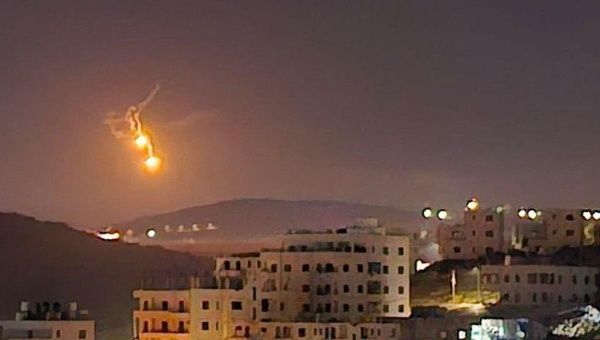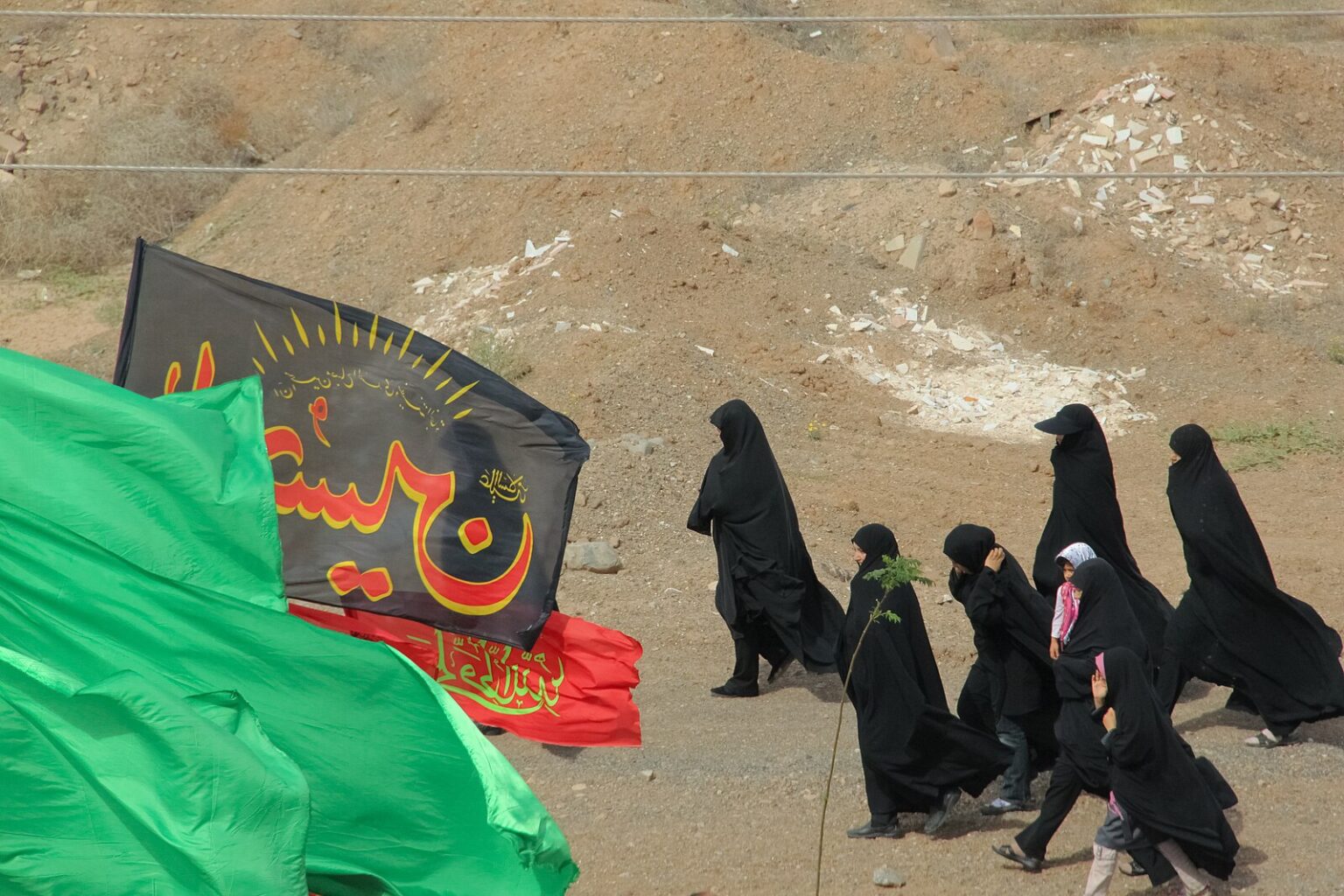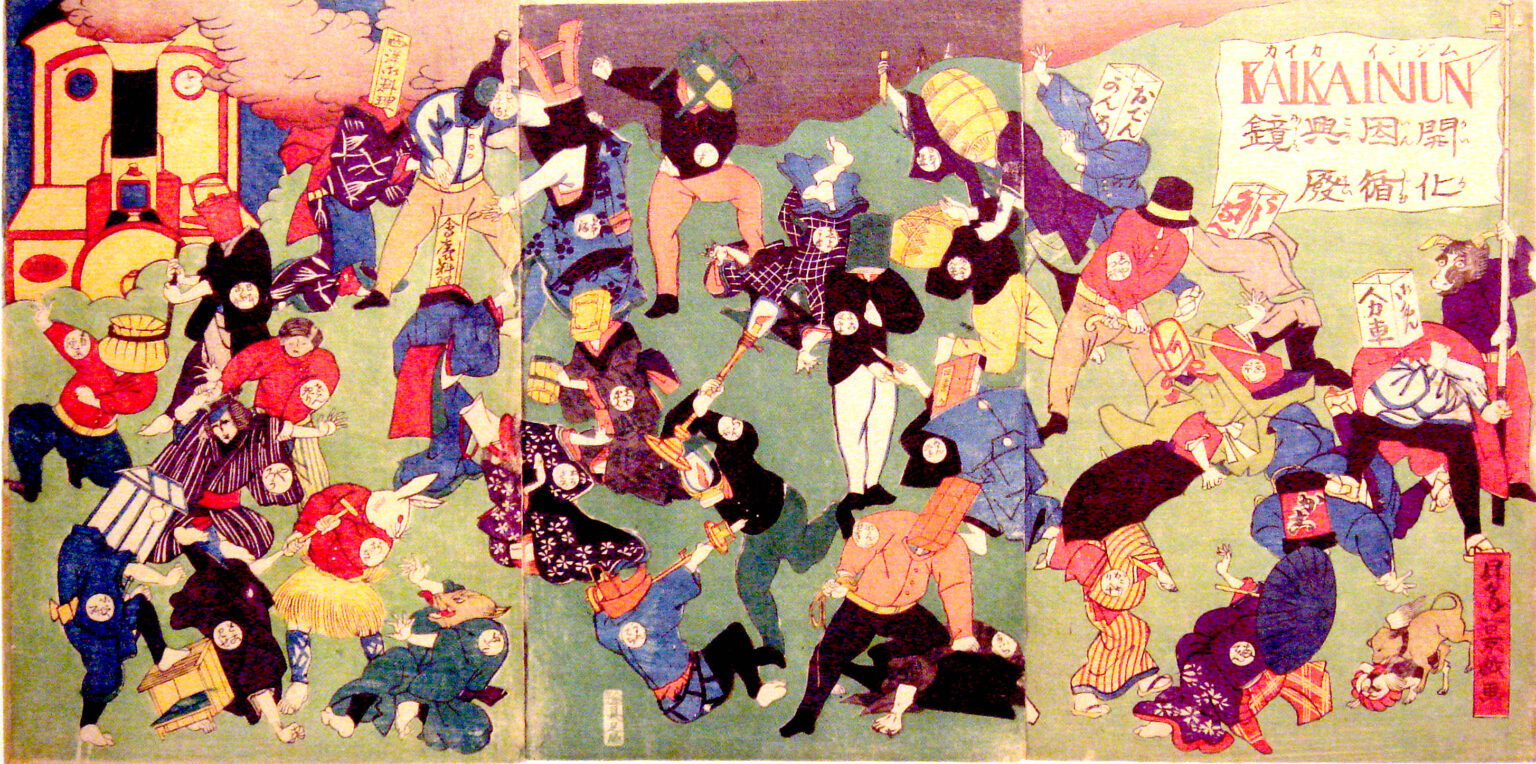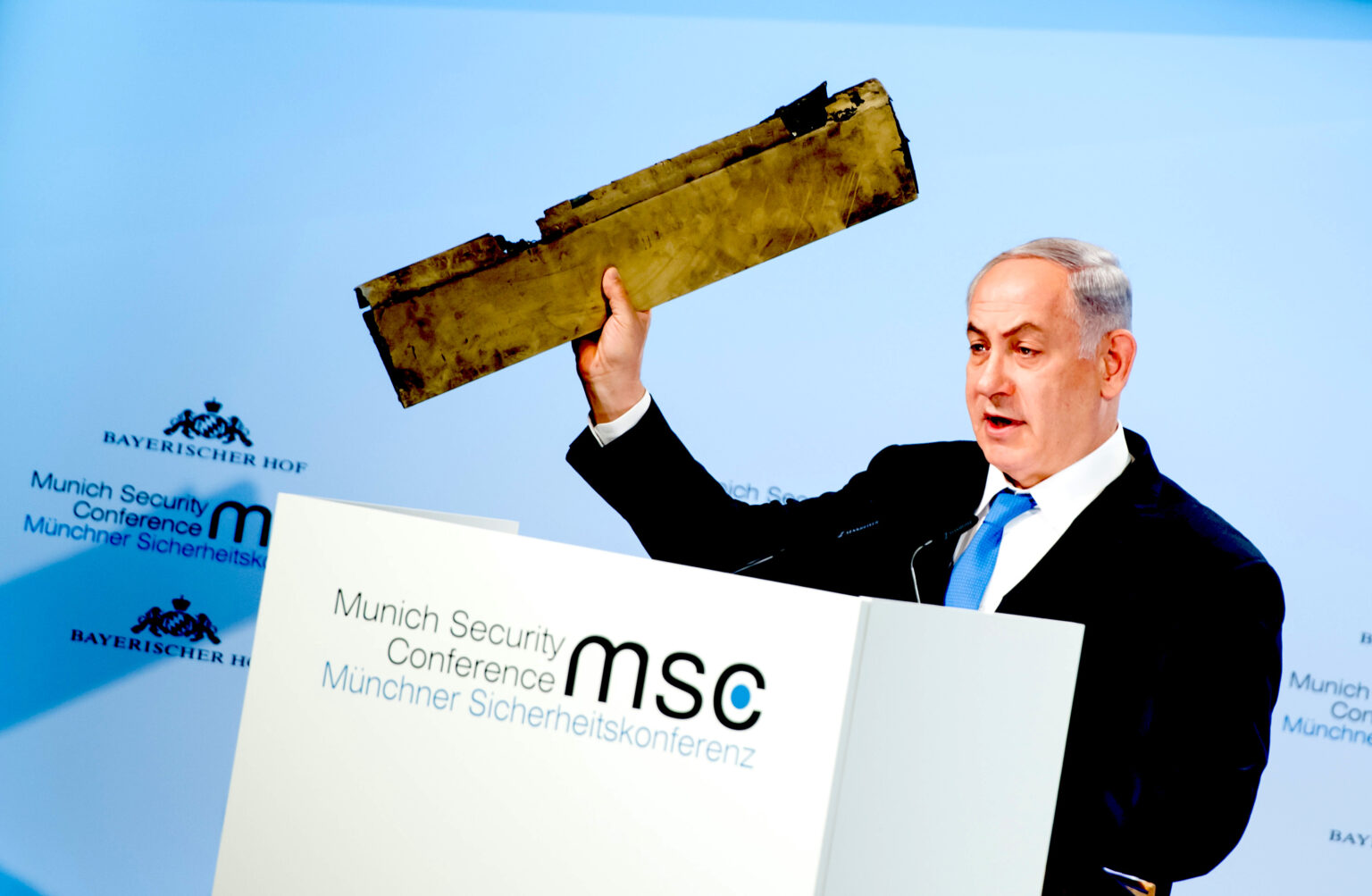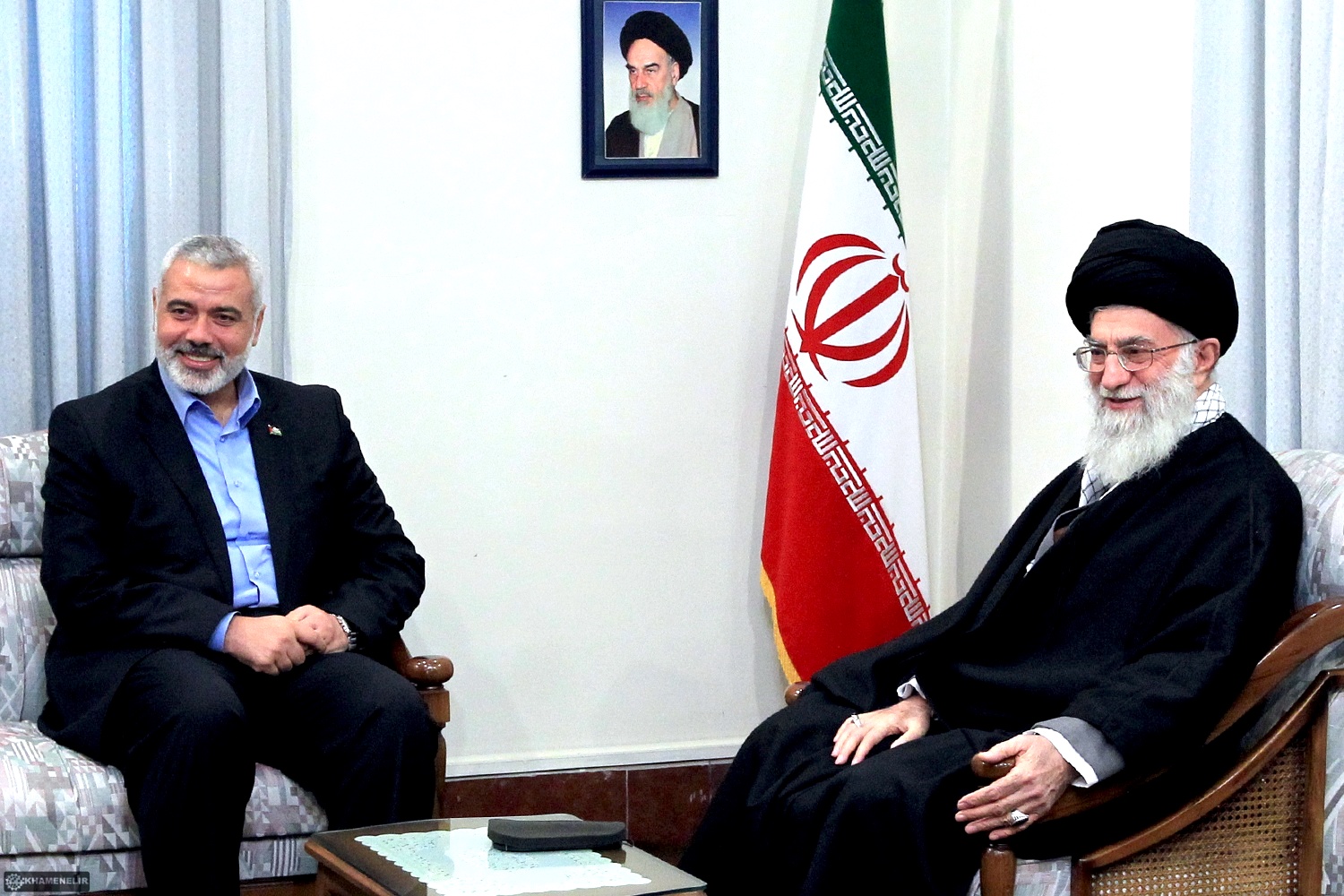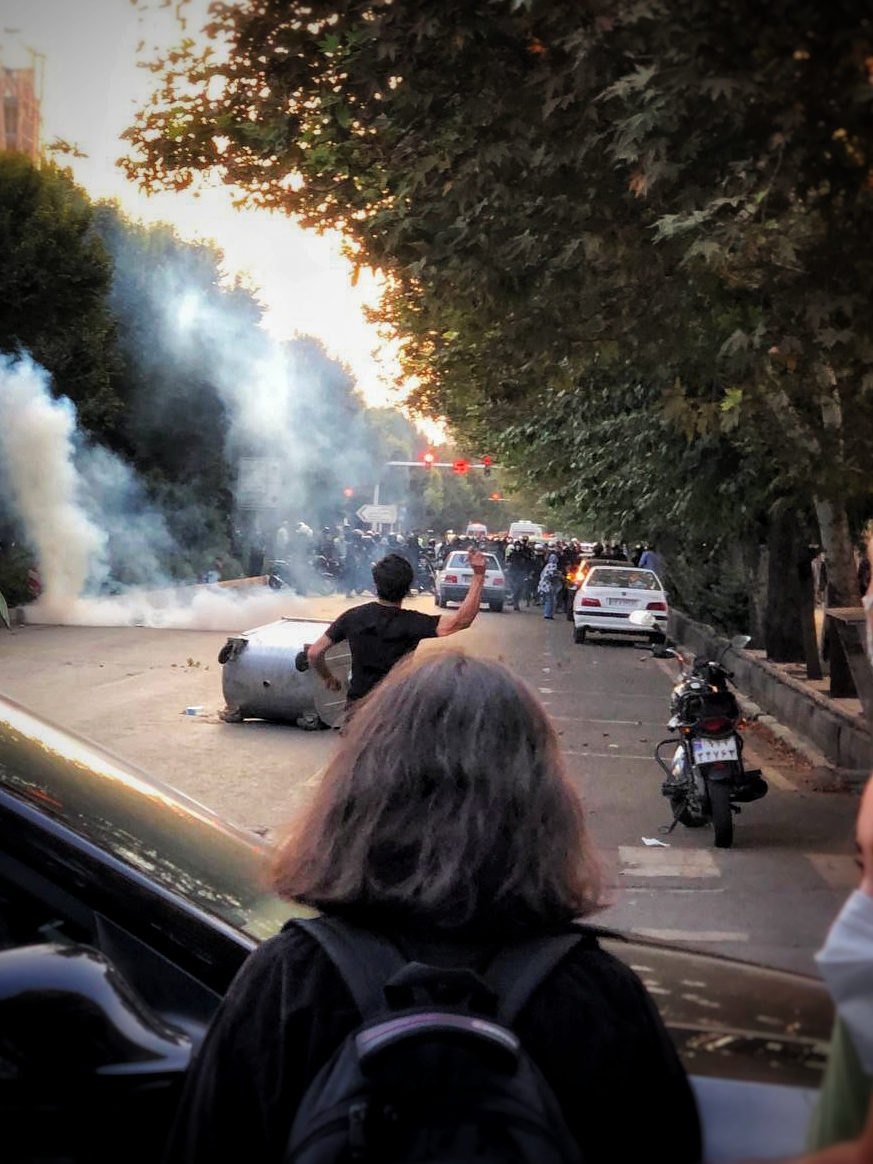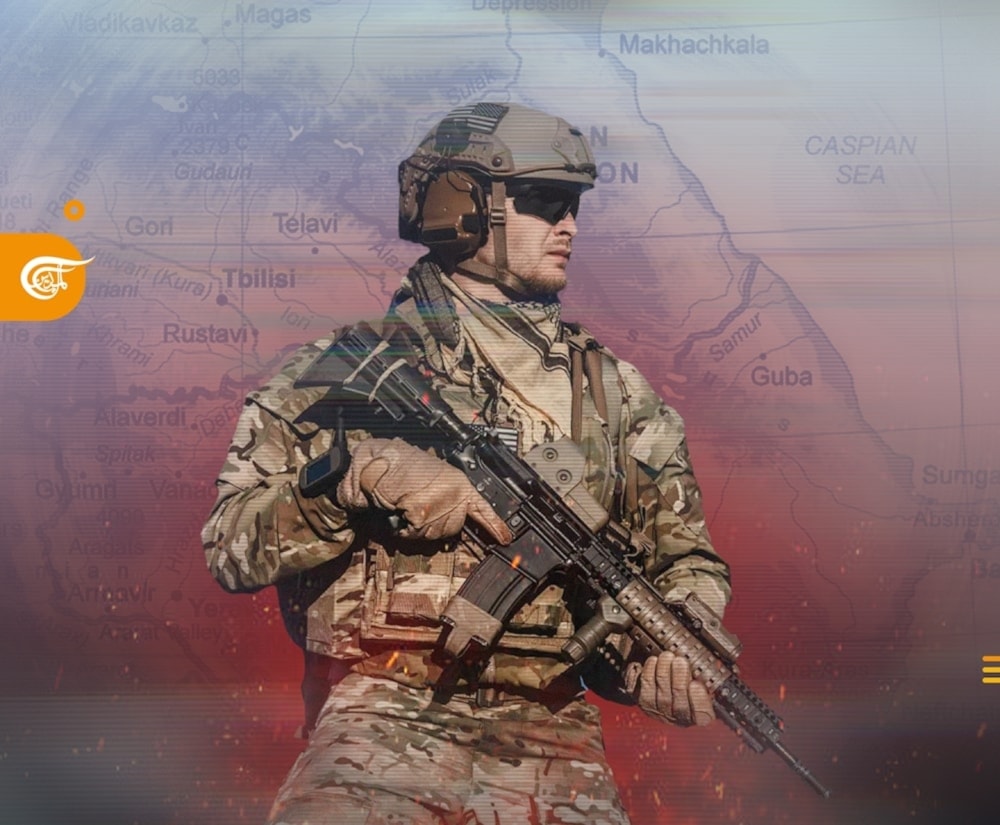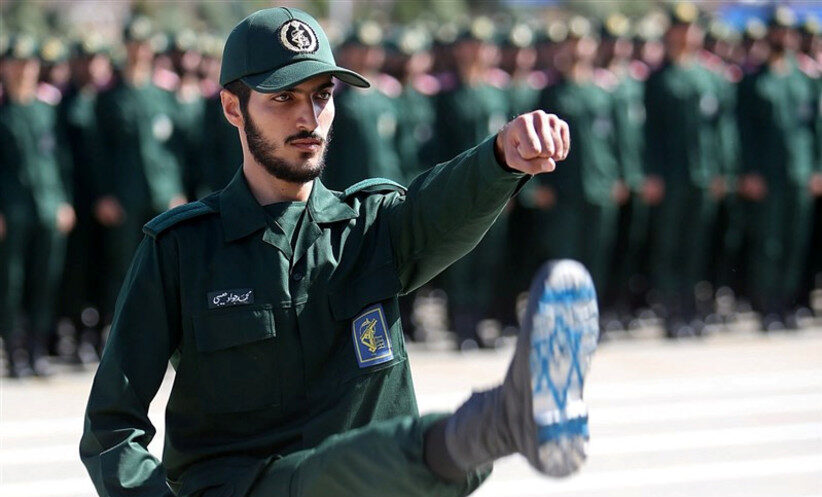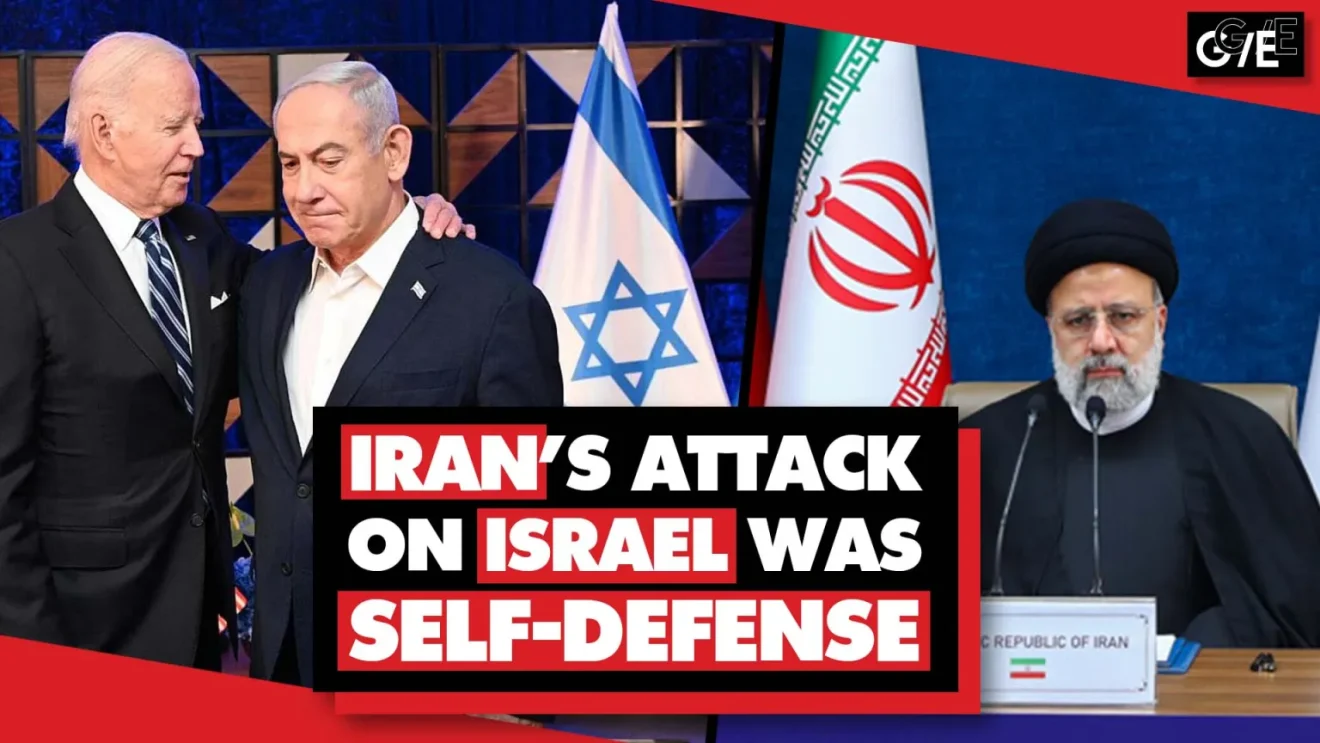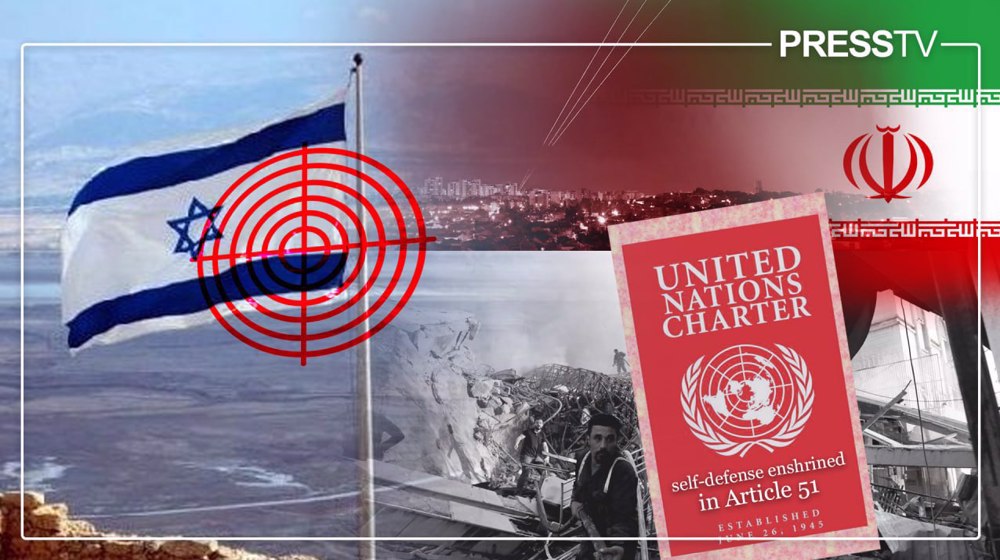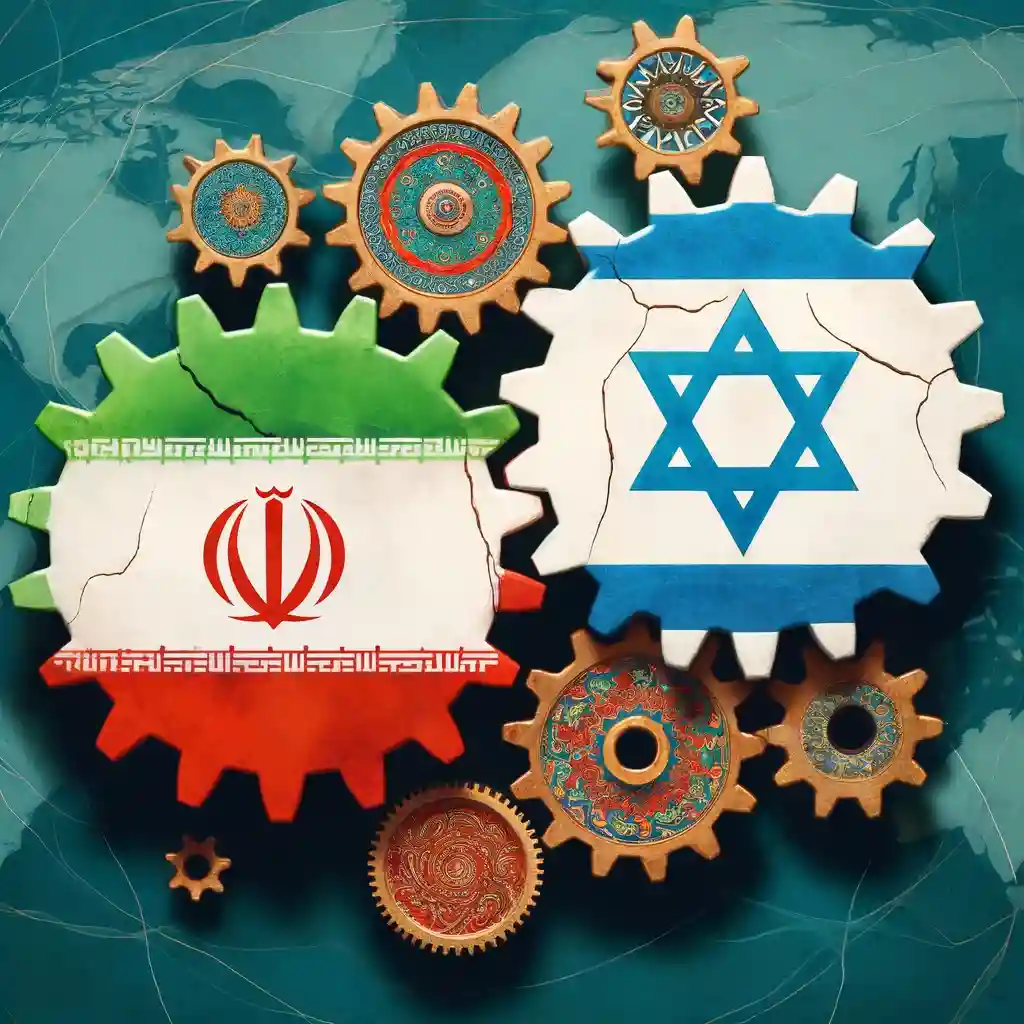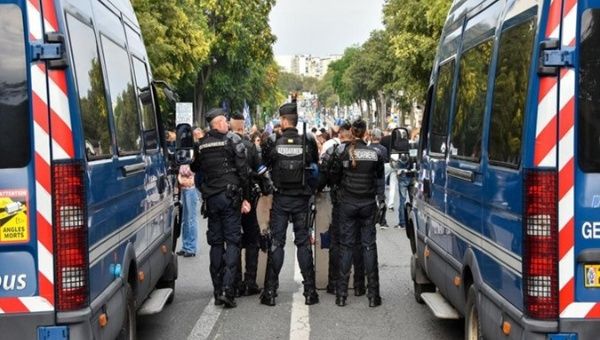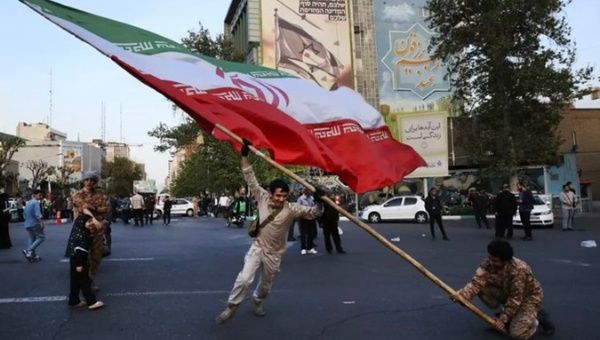The US and its allies refuse to condemn Israeli attacks on Iranian consulate in Syria
Iran and Syria claimed in the UN Security Council that the US is equally responsible for the Israeli attacks inside Syria but asserted that no amount of attacks can dissuade them from supporting Palestine
April 03, 2024 by Abdul Rahman
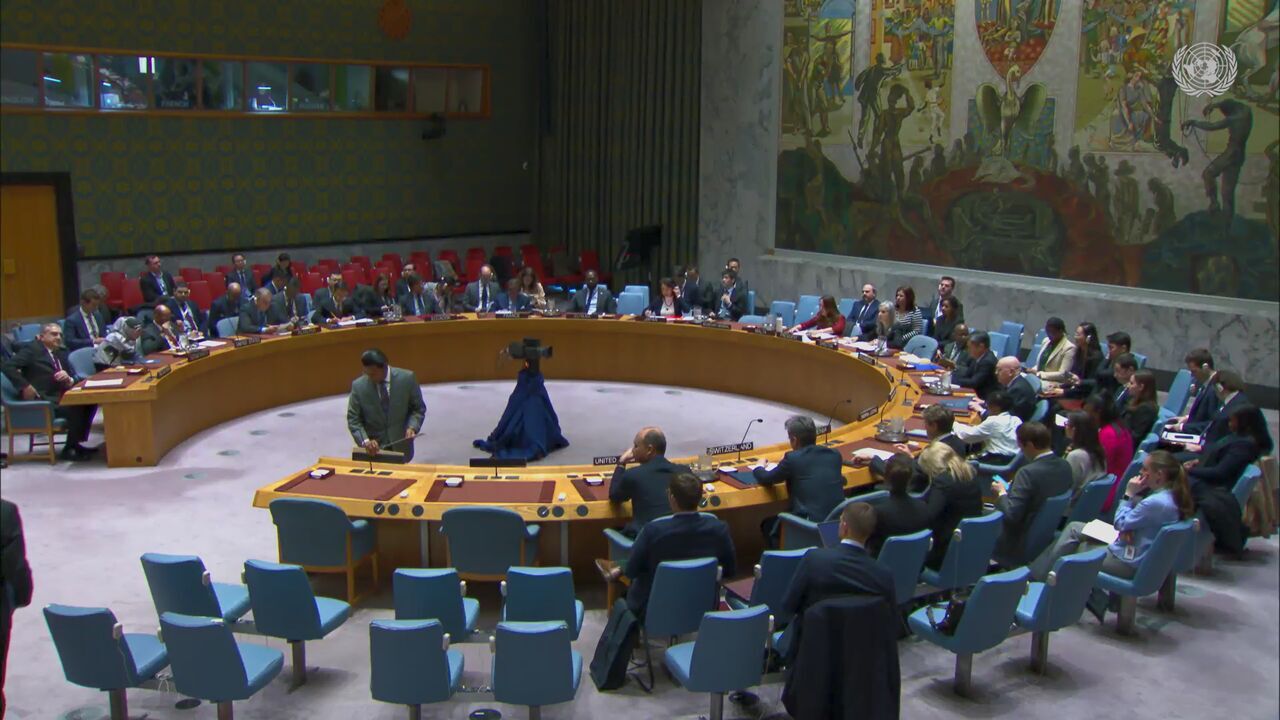
UNSC
During an UN Security Council meeting on Tuesday, April 2, the US and its European allies, the UK and France, failed to condemn the Israeli airstrike on the Iranian consular mission in Damascus a day earlier in which 13 people were killed.
In the Security Council meeting which was called by Russia following Iran’s request, representatives of France and the UK refused to acknowledge the Israeli role in the attacks and rather blamed Iran for provoking regional escalation.
The US representative Robert Wood also refused to condemn Israel and instead warned Iran against any further escalation. He claimed that his country is opposed to attacks on diplomatic missions, however, there is no clear information whether the building hit in Damascus on Monday was a diplomatic establishment.
The UN Secretary General Antonio Guterres however, condemned the act underlining that the “principle of the inviolability of diplomatic and consular premises must be respected in all cases,” assistant secretary general Khaled Khiari informed the session.
At least seven Islamic Revolutionary Guards Corp (IRGC) officials including top general Mohammed Reza Zahedi and Mohammed Hadi Haji Rahimi, working as advisors to the Syrian government were killed in the attack along with six Syrian citizens.
Reactions by the US, the UK and France invited sharp rebuttals from Iran and Russia.
US is responsible for any regional escalation
Speaking during the session, Iranian representative Zahra Ershadi claimed that the US “is responsible for all crimes committed by the Israeli regime” and blamed that refusal to condemn Israeli violations of international law by the UK and France amounts to encouragement.
Ershadi listed the laws and conventions violated by Israel during the attack on Monday on the Iranian consulate in Damasus and called it a “terrorist act.” She also called Israel’s repeated attacks inside Syria a “real threat to regional and international security.”
Claiming that Israel is getting away with its criminal acts against Palestinian people in Gaza and in the occupied territories, Ershadi underlined the need for accountability. She demanded action from the Council to make Israel fulfill its obligations under the UN charter and international laws.
Russian ambassador to the UN, Vasily Nebenzya said his country strongly condemns Israeli attacks. He claimed that such acts can cause greater escalation of war in the region and must be avoided. “We believe such aggressive actions by Israel, which are designed to further inflame the conflict, are unacceptable and must be stopped” he said.
Nebenzya also underlined that blame for any possible escalation of the situation due to Israel’s aggressive acts would be entirely on the US, the UK and France for their encouragement of its aggressive behavior by refusing to condemn such brazen acts.
China also said that Israel should not be allowed to get away with its gross violations of Vienna convention and strong action should be taken against it.
No amount of attacks can weaken regional solidarity
Syria’s permanent representative to the UN Qusay al-Dahak accused that the Israeli attack was carried out with the support of the US. Al-Dahak claimed it is because of the US support that Israel is able to commit crimes against humanity inside Gaza and at other places without any repercussions.
Israel has launched several attacks inside Syria since October 7 including the attacks last week on Aleppo airport killing scores of people and destroying civil infrastructure. It claims that Iran has been using Syria to provide support to Hamas and other regional players such as Hezbollah which have opposed the war in Gaza.
Al-Dahak, however, reiterated that no number of Israeli attacks inside the country can dissuade his country from supporting Palestine or talking about the return of the Arab lands occupied since 1967. Iran also reiterated its support to the Palestinian cause.
In a separate message, Syrian Prime Minister Hussein Arnous stressed that what happened on Monday would not affect the countries in the region to strengthen their relations with each other and independence of their foreign policy, SANA reported.
https://peoplesdispatch.org/2024/04/03/ ... -in-syria/
******
‘There are limits to our patience’: Iran at UNSC
Tehran stressed at the session that it holds the US responsible for all illegal attacks carried out by Israel
News Desk
APR 3, 2024

(Photo credit: X)
The UN Security Council held an emergency meeting on 2 April over the Israeli airstrike, which flattened Iran’s consulate in Damascus and killed several advisors and senior officials.
Iran demanded an urgent session that day following the unprecedented attack. The meeting was called by Russia.
During the session, Tehran’s ambassador to the UN, Zahra Ershadi, renewed the promise made by several Iranian officials that the Islamic Republic reserves the right "to take a decisive response" to the Israeli airstrike.
Iran “has exercised considerable restraint, but it is imperative to acknowledge there are limits to such forbearance,” Ershadi said, adding that it holds Washington “responsible for all crimes committed by the Israeli regime.” She also blamed the US for destabilizing Syria and the region and for continuing its support of the Israeli war on Gaza.
“This crime bluntly breaches the fundamental principle of diplomatic and consular immunity and flagrantly violated the 1961 Convention on Diplomatic Relations, the 1963 Vienna Convention on Consular Relations, and the Convention on the Prevention and Punishment of Crimes Against Internationally Protected Persons, including Diplomatic Agents of 1973,” Ershadi continued.
Russia’s UN representative, Vasily Nebenzia, said during the emergency meeting that Israel’s attack was a “flagrant violation” of Syrian sovereignty and said Moscow believes “that such aggressive actions by Israel are designed to further fuel the conflict. They are absolutely unacceptable and must stop."
China also strongly condemned Israel, calling it “a grave violation of the UN Charter and international law and a breach of the sovereignty of both Syria and Iran,” adding that the attack was of an extremely vicious nature."
China blasts Israel at the UN: "This is a grave violation of the UN Charter and international law and a breach of the sovereignty of both Syria and Iran. This attack is of an extremely vicious nature... 25 years ago, China's embassy in Yugoslavia was bombed by a US-led NATO… pic.twitter.com/bfGdpdziy1
— COMBATE |

(@upholdreality) April 2, 2024
“25 years ago, China's embassy in Yugoslavia was bombed by a US-led NATO airstrike... we feel the grief and pain of the Iranian government and people,” said Geng Shuang, China's Deputy Permanent Representative to the UN.
Syria's Permanent Representative echoed Ershadi's comments and said the attack would not have happened without Washington's “blind support” for Israel.
Mohamed Khaled Khiari, Assistant Secretary-General for the Middle East, Asia and the Pacific, told the UNSC that the "inviolability of diplomatic and consular premises and personnel must be respected in all cases in accordance with international law."
Washington’s deputy ambassador to the UN, Robert Wood, warned Iran “and its proxies not to take advantage of the situation” by resuming attacks on US bases in Iraq and Syria, stressing the US “had no involvement or advanced knowledge” of the attack on the consulate.
Earlier that day, a US official told Axios that Washington swiftly informed Tehran that it had no part in the strike.
The airstrike completely leveled the Iranian consulate in Syria's capital, Damascus, killing several, including a senior officer in Iran's Islamic Revolutionary Guard Corps (IRGC), Brigadier General Mohammad Reza Zahedi.
IRGC officer Brigadier General Mohammad Hadi Hajj Rahimi was also killed in the attack, alongside five other advisors and officials.
Iranian President Ebrahim Raisi vowed the attack would “not go unanswered.” Several other officials, including Iran’s ambassador to Syria, Hossein Akbari, promised that a response would come.
Several nations have publicly condemned the deadly attack on the consulate. The UAE, Saudi Arabia, Qatar, Jordan, and Egypt all released statements, as well as resistance groups Hamas and Hezbollah.
https://thecradle.co/articles/there-are ... an-at-unsc
IRGC wages hours-long battle after latest terror attack in Iran
Several terror attacks and bombing plots have been foiled by the Islamic Republic in recent months
News Desk
APR 4, 2024

(Photo credit: X)
Clashes raged between Iranian forces and members of the extremist Jaish al-Adl separatist group on 4 April, following the latter’s attempted infiltration into an Islamic Revolutionary Guard Corps (IRGC) base the night before.
The attempted infiltration took place in the province of Sistan and Baluchistan and was fully repelled by the early hours of Thursday. A naval base, a police headquarters, and an awareness center were among the other sites attacked by militants.
Alireza Marhamati, Sistan and Baluchistan’s deputy governor of security and law enforcement, said that clashes with the attackers ended early on Thursday and that the IRGC was carrying out search operations and “purging the area.”
“The assailants were confronted with thanks to the preparedness of the military and law enforcement forces. The security situation is under control,” Marhamati said.
Ten members of Iran's security forces have been confirmed killed in the attack. Eighteen Jaish al-Adl militants were killed by Tehran's forces.
“Members of the terror outfit attempted to enter the base in the late hours of Wednesday but failed after resistance from the base’s fighters. They first opened fire on the base from the hills near the city’s hospital, and were met with the IRGC forces’ fire,” Iran’s semi-official Tasnim news agency reported.
The Jaish al-Adl attackers used explosives to try entering the IRGC base, but failed “thanks to the vigilance” of the IRGC, the outlet added.
Jaish al-Adl was founded in 2012 and has operated mainly in the southeast of Iran and on the Pakistani border. It has carried out numerous attacks on the country. In January 2024, Iran launched airstrikes targeting Jaish al-Adl cells on Pakistani soil.
At the time, Anant Mishra, an international relations expert and visiting fellow at the University of South Wales’ International Centre for Policing and Security, said that Jaish al-Adl is closely linked to Israel’s Mossad intelligence service.
The attack came just hours after Iran’s Supreme Leader Ali Khamenei vowed a response to the Israeli attack on Iran’s consulate in Damascus on 1 April, which completely flattened the diplomatic building and killed several senior officials and advisors.
It also came two days after Iran announced foiling an ISIS attack on the city of Qom on Tuesday.
Iran has foiled several extremist attacks in recent months, including last year, when a massive ISIS bombing plot was thwarted by security forces in Tehran.
https://thecradle.co/articles/irgc-wage ... ck-in-iran
******
Netanyahu is determined to drag the U.S. into war with Iran
Steven Sahiounie
April 3, 2024
The region, and the U.S. are on the brink of a war which could be avoided by the U.S., but probably Biden and the Congress will decide to follow Netanyahu into the abyss.
In an unprecedented and dangerous escalation, Israel targeted the Iranian Consulate in Damascus on April 1. It has been many years since Israel has bombed targets inside Iran, and the diplomatic building, directly attached to the Iranian Embassy, is considered the same as an attack on Tehran. According to the Vienna Convention on Diplomatic Relations, in 1961, articles 21 and 22 concern embassies and all types of diplomatic missions.
According to accepted international norms and traditions, diplomatic premises are considered part of the sovereignty and territory of the sending states. Therefore, the attack on the Iranian consulate can be seen as an attack on Iranian territory.
Kingdom of Saudi Arabia Ministry of Foreign Affairs wrote on X their condemnation of the targeting of the Iranian consulate in Damascus, @KSAmofaEN. Saudi Arabia is the most powerful Arab country, and had come to a restored relationship with Iran, brokered by China in March 2023.
Iran’s Islamic Revolution Guard Corps (IRGC) condemned the Israeli aggression and mourned the commander of the Quds Force in Lebanon and Syria, General Mohammad Reza Zahedi, and Brigadier General Mohammad-Hadi Haji-Rahimi, as well as IRGC officers Hossein Amanollahi, Seyyed Mehdi Jalalati, Mohsen Sadaghat, Ali Agha Babaei, and Seyyed Ali Salehi Rouzbahani.
Israel’s F-35 fighter jets had launched six missiles from the occupied Golan Heights in a targeted attack on the Iranian Consulate’s building.
The Consulate and Embassy are situated in the upscale densely populated neighborhood of Mezze. All the neighboring buildings lost their window glass from the blast. Innocent Syrian civilians were injured while in their own homes at 5:00 pm, preparing to break their fast during Ramadan at 6:45 pm. Pedestrians were injured walking by as they shopped or returned home. A Syrian champion swimmer is hospitalized in very serious condition from wounds she received while walking in the street. The parked cars in the street were damaged and set ablaze.
“The aggressor Zionist regime bears full responsibility for its consequences and the Islamic Republic of Iran reserves its legitimate and inherent right under international law and the United Nations Charter to take a decisive response to such reprehensible acts,” Zahra Ershadi, Iran’s ambassador to the United Nations, wrote late Monday in a letter to the UN secretary general.
Dmitry Polyanskiy, Russian First Deputy Permanent Representative to the UN, confirmed on Telegram that a Security Council meeting to discuss the Israeli attack will be held on Tuesday at Russia’s request.
Iran will be preparing for a retaliatory response to the Israeli attack. The White House said the U.S. was not warned in advance by Israel of the planned attack. U.S. President Biden has warned Israel previously that the U.S. does not want the Israeli war on the Palestinian people of Gaza to grow wider into a regional conflict which would certainly involve the U.S., as the military sponsor of Israel.
Prime Minister Benjamin Netanyahu has said that Iran is the chief enemy of Israel, and he famously presented a cartoon drawing of a bomb in his speech to the UN General Assembly, warning countries to prevent Iran in obtaining a nuclear weapon. U.S. President Obama made a deal with Iran, and it was working to contain Iran’s capability to make materials to create a nuclear bomb, but U.S. President Trump ripped up the U.S. treaty, which included five other nations as signatories. Netanyahu lobbied Trump to tear up the deal, so that Israel could keep Iran in the hot-seat, as enemy number one.
Netanyahu faces thousands of Jews in the streets in Israel protesting his refusal to make a ceasefire deal with Hamas and bring home the Israeli hostages in Gaza. Instead, Netanyahu is determined to keep the war going, which has killed over 32,000 people, mainly women and children. The Israeli public is now calling for him to resign, as they see he has brought the country to its knees in Gaza, and after almost six months of war, Hamas is not defeated, while Israeli soldiers and hostages are dying, and some may be starving inside Gaza.
Netanyahu’s strategy is to deflect. He seeks to create a bigger war to deflect from his domestic problems. His calculated strike on Iranian diplomatic property in Damascus, was his first step to take the focus off Gaza, and get the U.S. involved in a conflict with Iran. The U.S. Congress will support this, even if the Biden administration is reluctant. The personal relationship between Biden and Netanyahu is at its lowest point. Biden had been asking Netanyahu to deliver humanitarian aid into Gaza, and Netanyahu flatly refused. Biden had told Netanyahu that going into Rafah was a “Red Line”, but Netanyahu has refused to change his military plans.
Although Biden can stop the war in Gaza with just one phone call cutting off the free flow of U.S. taxpayer paid weapons to Israel, he refuses to. Which brings us to the conclusion: that the Gaza war, and the 32,000 plus lives lost, are the responsibility of President Joe Biden, and no one else. Even though voters from Michigan and Minnesota have already said they will not vote for Biden because of his complicity in the genocide in Gaza, still Biden is willing to lose the election to Trump for the sake of Zionism, which is a fascist political ideology hiding behind a religion.
Experts warn that the international community should take actions to stop Israel from further aggravating tensions and violating international laws. The region, and the U.S. are on the brink of a war which could be avoided by the U.S., but probably Biden and the Congress will decide to follow Netanyahu into the abyss, all the while depending on the hardworking U.S. taxpayer to foot the bill, and pay the bloody costs.
https://strategic-culture.su/news/2024/ ... with-iran/
******
How do Iranians ‘Boil a Frog’? Slowly and Methodically
Posted by INTERNATIONALIST 360° on APRIL 3, 2024
Shivan Mahendrarajah
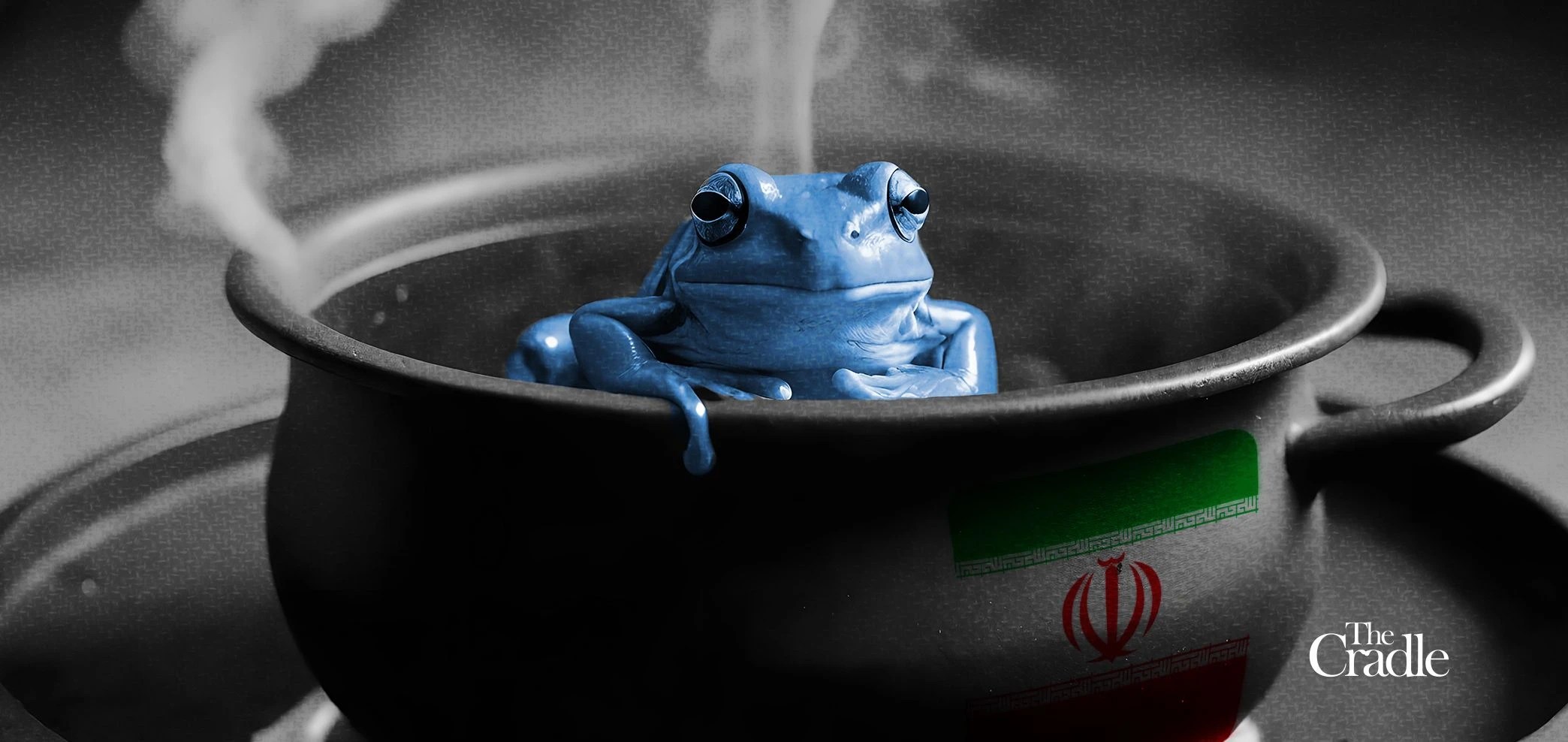 Iran’s apparent restraint in the face of Israeli aggression should not be mistaken for weakness. Tehran steadily applies pressure on Tel Aviv through its own methods, setting the stage carefully for Israel’s unravelling.
Iran’s apparent restraint in the face of Israeli aggression should not be mistaken for weakness. Tehran steadily applies pressure on Tel Aviv through its own methods, setting the stage carefully for Israel’s unravelling.
A strategy in asymmetrical warfare is expressed by the “boiling frog” theory:
Legend has it that a frog placed in a shallow pot of water heating on a stove will remain happily in the pot of water as the temperature continues to climb, and will not jump out even as the water slowly reaches the boiling point and kills the frog. The change of one degree of temperature at a time is so gradual that the frog doesn’t realize he is being boiled until it is too late.
While the story is an apologue – a pretty fable meant to convey a meaningful lesson – it is one frequently invoked by militaries and geopoliticians to describe the “long game” of reaching strategic objectives.
Today, it is Iran and its regional allies who are using a measured approach to increase temperatures in West Asia until the water boils the US and Israeli ‘frogs’ to death. Strategy, discipline, and rare patience – the antithesis of western short-termism – will bring Iran victory. To quote the Taliban: “Americans have watches, but we have the time.”
Time is now on the side of Iran’s Islamic Revolutionary Guard Corps (IRGC) and its regional allies. Two connected examples show how the IRGC is calibrating temperatures like scientists in a laboratory.
The Yankee Frog
Following the launch of the Hamas-led resistance operation Al-Aqsa Flood on 7 October of last year, US President Joe Biden deployed US Navy assets to the Persian Gulf and Mediterranean Sea to “defend” Israel.
On 26 November, the USS Eisenhower and its escorts navigated through the Straits of Hormuz, anchoring in the Persian Gulf on the Saudi Arabian side. Yemen’s Ansarallah-aligned naval forces initially targeted Israeli ships and Eilat Port with their first shots on 19 October. But by 29 November, their attacks escalated to include vessels bound to or from Eilat, irrespective of flag or ownership.
This pattern culminated in the Pentagon’s announcement of “Operation Prosperity Guardian” on 18 December, aimed at safeguarding Israel’s economic interests at the expense of US military personnel. Subsequently, the Eisenhower and its naval escorts relocated from the Persian Gulf to the Red Sea and the Gulf of Aden, purportedly to “defend” the occupation state.
Instead, the positioning of US Navy assets in the Red Sea and Gulf of Aden has left them susceptible to potential attacks from Iranian or Iranian-supplied weaponry, including cruise missiles, ballistic missiles, and drones.
Despite efforts from the US Navy (USN) and the US Air Force (USAF), Ansarallah remains undefeated. Previous Anglo–American airstrikes in Yemen have proven ineffective, while the ongoing pace and expanding scope of Yemeni operations are straining naval resources and dampening morale.
Unlike ‘Hollywood guns,’ US Navy vessels do not have unlimited interceptor missiles, nor can they be reloaded at sea. As for the morale of American personnel, it will break in the long run, particularly since many, if not most, sailors and marines are simply not invested in a fight for Israel.
Last month, Captain Chris Hill, the commanding officer of the USS Eisenhower, said: “People need breaks, they need to go home.”
While sailors, marines, and airmen are getting antsy dodging Ansarallah’s drones and missiles on a daily basis, the ‘Yankee Frog’ is merrily paddling about his Washington hot tub, believing the ‘might’ of the USN will defeat the pesky ‘Houthis.’
This was arguably a well-calibrated move supported by Iran that accomplished two objectives: First, it got the carrier battle group out of the Persian Gulf, and second, it sucked the US into an escalatory trap. The Yankee Frog is in the Red Sea/Gulf of Aden hotpot. It cannot win.
It will either jump out and flee in humiliation, further destroying the credibility of the US armed forces following its humiliating 2021 debacle in Afghanistan; or it will remain in the hotpot and be boiled to death—with the loss of ships and lives.
With either outcome, Iran wins. Relatedly, an Iranian defeat of the US will be welcomed by China, Russia, and scores of US adversary states, particularly across the global south. As noted by one astute Twitter/X user, Armchair Warrior (describing Russia’s likely responses to Ukrainian provocations), by its actions, Iran has demonstrated “reflexive control” over Washington’s actions. By this, he means, “If every military action you take gets a symmetrical reaction, then you can control the nature, venue, and tempo of the conflict to your benefit.” This is precisely what the IRGC is cleverly doing.
The Israeli Frog
The wee ‘Israeli Frog,’ meanwhile, somnolent in the warm water, is dreaming of his ‘new Israel’ – the Israel that he will create once he has ethnically cleansed Gaza. He has plans to develop Gaza, build luxury condos along the beachfront, and build housing units for new settlers.
Architects are now drawing up plans. Former President and current Republican contender Donald Trump’s son-in-law, Jared Kushner, a Netanyahuist and Likud Party benefactor, is measuring drapes for his Gaza waterfront condominium.
However, the Israeli military has not defeated Hamas, which continues to inflict significant damage to Israeli military hardware and human assets. By one estimate, Hamas has only been degraded by 15–20 percent. The occupation army wholly depends on the US and its European vassal states for armaments since its domestic production capacities are limited.
According to one estimate, some 500,000 settlers have returned to their homelands; most will not return. Since 7 October, conscription is no longer a safe yet inconvenient three-year requirement: parents are afraid for their daughters and sons.
The dormant refusenik movement that emerged from the 1982 Israeli invasion of Lebanon has re-awakened. Draftees are refusing to serve and being jailed as a result. The conscription exemption for ultra-Orthodox Jews expired on 1 April; they are threatening to flee Israel, whose very survival is dependent on Jews moving there.
If representatives of ultra-Orthodox Jews quit Prime Minister Benjamin Netanyahu’s coalition, it could bring down his extremist government. Internal tensions within Israeli society are escalating, fueled by socio-economic pressures and disillusionment with the government’s handling of the war.
The Israeli economy is in shambles. The shekel is declining. It is 3.60 ILS to 1 USD from highs of 4.01 ILS to 1 USD, with further declines likely. Budget deficits and borrowing have skyrocketed. Moody’s downgraded Israel’s credit from A1 to A2 on 9 February. Israel’s tourism industry has collapsed into crisis. Most major airlines no longer fly to Israel. Israel’s manufacturing and agricultural bases are small. Israel has limited access to natural resources and energy; it depends on overland lifelines to Jordan and Egypt, with Azerbaijani oil and gas coming to Haifa from Turkey.
Iran is doing to Israel just what Israel did to it with economic sanctions. But unlike Israel, Iran has abundant supplies of oil and gas, 85 million literate and educated people who are not planning to flee, and formidable agricultural and manufacturing bases.
Tehran is methodically throttling Israel’s economy. Haifa port is on Hezbollah’s target list. If Haifa is shut down alongside Eilat, Israel will only have overland lifelines for food and energy supplies. Ben Gurion International and other airports may be targeted in the future.
Turning up the heat, one degree at a time
The recent Israeli attack on the Iranian diplomatic mission in Damascus, purportedly in response to an Iraqi drone striking Eilat, mirrors Netanyahu’s apprehensions and frustrations – that “the whole world is ganging up on us.”
Netanyahu’s strategy appears to be to goad Iran into escalating tensions, potentially prompting them to target American military assets in the region, thereby drawing the US into the Gaza War. However, it’s uncertain whether Tehran will take the bait.
While the IRGC is likely to respond, they will look to avoid falling into Netanyahu’s trap. Instead, Iran may opt to tighten its economic stranglehold on Israel, possibly by targeting strategic locations such as Eilat, Haifa, and Ben Gurion Airport.
The IRGC understands that Israel’s economy cannot sustain a prolonged conflict. Therefore, their strategy might involve a gradual escalation – effectively boiling the Israeli frog slowly – through coordinated actions involving Hezbollah, Ansarallah, and various Syrian and Iraqi-based factions.
As the economist Herbert Stein noted, “If something cannot go on forever, it will stop.” While Israel is far from being on the brink of collapse, the disciplined and calculated actions of the IRGC are steadily increasing regional tensions. If left unchecked, this could lead to significant repercussions for Israeli society and its economy – all without it realizing, like the wee boiling frog.
https://libya360.wordpress.com/2024/04/ ... hodically/
